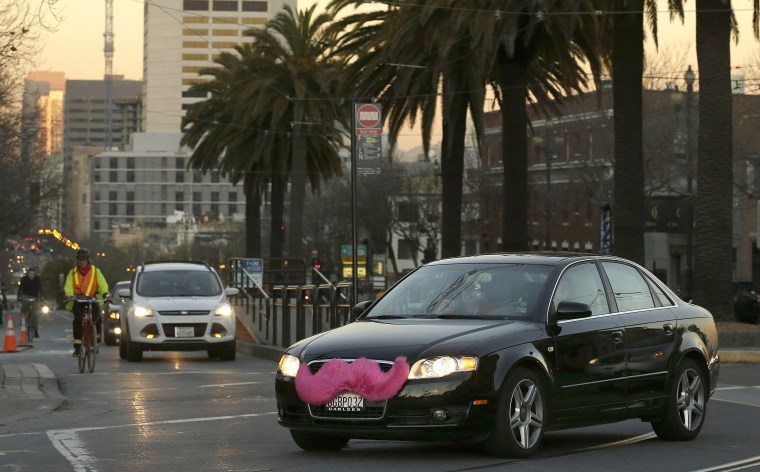San Francisco-based ride-hailing company Lyft and Chinese peer Didi Kuaidi have formed a partnership to make it easier for people to get rides when they travel between the U.S. and China.
The two companies announced Wednesday they have cross-linked their apps, allowing users of each service to hail rides from drivers while they are in the other country. Here's how it works: Lyft users from the U.S. can hail rides in China using the Lyft app, and those ride requests will be fulfilled by Didi Kuaidi drivers. Chinese visitors in the U.S. can use the Didi Kuaidi app to find rides, which will be staffed by Lyft drivers.
Nearly 8 million people traveled between the two countries in 2014.
Lyft also confirmed Didi had invested $100 million in it earlier this year as part of a financing round led by Japanese e-commerce giant Rakuten.
Didi Kuaidi is China's largest ride-hailing company and Uber's top rival in the country. The company says its mobile apps provide taxi-, car- and bus-sharing services to 200 million people in 360 cities in China. Lyft is the second-biggest on-demand ride service in the U.S. behind Uber.
"Our world continues to become more connected, and yet each market has its own unique culture, challenges and opportunities," Lyft said in a blog post. "Partnering with Didi, the only company that provides complete coverage in all major Chinese cities, is the best way to provide a simple, seamless experience when people travel to China and the United States."
Related: Former Uber Driver Was An Employee, Rules California Department
The strategic partnership is seen as a way to fend off Uber's penetration of the Chinese market. Uber is currently available in fewer than 20 cities in China but CEO Travis Kalanick has said he wants to expand to 100 more cities in 2016.
